Join us all year and celebrate the past, present and future of Jewish education, culture and arts in Australia.
|
|
|
|
|
|
“Ah, how good it is to be among people who are reading.”
– Rainer Maria Rilke
The reading experience of our brilliant advisory committee here at the Festival is something we take very seriously! This month we’d like to thank each of them for their support and guidance throughout the year. Thank you to Rita Nash, Michaela Kalowski and Adam Van Rooijen, Rita, our longest running committee member has answered the My Reading Life section below. Rita is particularly very well versed in Holocaust education and books and moderated a fantastic session on this theme at the Festival in August.
Which leads us to our last author event for the year on November 29. We are delighted to host the Sydney book launch of journalist Rachelle Unreich’s A Brilliant Life (Hachette). A Brilliant Life is the powerful true story of Mira Unreich, a Holocaust survivor told by her daughter Rachelle – a tale that reminds us of the resilience of the soul and the ability of the heart to heal. Unreich will be interviewed by Magdalena Ball, and Professor Konrad Kwiet will officially launch the book.
We are proud to share the Shalom launch of the special 50th Anniversary commemorative cookbook: A Taste of Our Community. This is more than just a collection of recipes; it is a testament to the enduring spirit of togetherness and the rich tapestry of flavours that define our community.
We welcome the community to join the launch and babka bake and enjoy a panel discussion with contributors Anna Kharzeeva, Marilyn Immerman, Anna Maylis, Craig Shulman and Benjamin Ezzes.
Shalom,
The SJWF team
|
|
|
|
|
|
Over seventy years had passed since Mira Unreich was freed from a concentration camp in Germany. In the decades that followed, she never explained the mystery underpinning her survival. How could Mira say that in the Holocaust ‘I learned about the goodness of people’?
A Brilliant Life weaves together the past and the present to capture the powerful connection between a mother and child. It reminds us of the resilience of the soul and the ability of the heart to heal. It is an unforgettable story about fate and chance, love and grief, and the deepest kind of faith.
|
|
Date: Wed 29 Nov
Time: 7:00pm – 8:30pm
Location: Randwick location
|
|
|
|
50 Stories and Recipes
Shalom has been at the forefront of Jewish life and learning over the past 50 years, and this cookbook celebrates a half-century of impact. Shalom College, founded in 1973, has been a home for thousands of students, and Shalom programs (under many different auspices) have been central to creating a strong and vibrant community. These recipes are from a collection of people, current and past staff, partners, board members, volunteers, presenters, and participants, who have, over the course of time, shaped the Jewish experience of an entire community. Some of the recipes are from festival meals, others family favourites. They are delicious, wholesome, and share a story.
|
|
Date: Thurs 30 Nov
Time: 7:00pm – 8:30pm
Location: Eastern Suburbs
Attendees will receive A Taste Of Our Community Cookbook and their babka to bake at home.
|
|
|
|
Creative Responses to Crisis
|
During challenging times, many people turn to creative expressions such as poetry, writing, song, photos, painting, and more to help process and soothe their souls. If you’re looking for a supportive and safe community to share your work with, tag @sydjewishwritersfest or email us a copy of your work. We will endeavour to share your creations in our stories and archive them as our community’s response to the crisis.
|
|
|
|
|
|
|
|
|
|
1. How to Fight Anti-Semitism by Bari Weiss
Winner of the National Jewish Book Award. The prescient founder of The Free Press delivers an urgent wake-up call to all Americans exposing the alarming rise of anti-Semitism in America—and what can be done to defeat it.
2. Jerusalem: The Biography by Simon Sebag Montefiore
A new, updated, revised edition explores the wider history of the Middle East through the lens of the Holy City, covering from pre-history to 2020, from King David to Donald Trump.
3. Jewish Mindfulness for Kids – Blanca Sissa
With rates of anxiety skyrocketing even among children, it’s never too early to offer youngsters tools that will allow them to be present in the moment. In addition to
teaching various forms of breathwork, rest, and visualization, this book connects the practice of mindfulness to Jewish traditions.
|
|
|
|
|
|
Rita is the longest serving member of the Sydney Jewish Writers Festival Committee. Read her interview below.
|
|
Rita managed an independent bookshop for 13 years after years of teaching and librarianship in primary, secondary and tertiary institutions. Rita described the process of coming to terms with her Holocaust demons in her story The Last Barrier, published in Children of the Shadows, Australia’s first collection of second-generation survivor stories.
Rita guides at the Sydney Jewish Museum and volunteers at the Museum Library. She has been researching and writing the story of the Polish Jews who survived the Holocaust by fleeing to the Soviet Union and has just presented her lectures on the topic in Poland.
|
|
|
|
|
|
What are you currently reading?
“Wifedom” by Anna Funder. It’s an analysis of the way female partners of renowned male authors (in this case George Orwell/Eric Blair) are ‘written out’ of the lives and books of the men. They became footnotes to the enterprise of living and writing but if you scratch the surface, you see that the spouses are not only muses but often contribute to the writing as well as keeping the household going. Anna Funder intersperses her research with comparisons to her own writing life.
It’s a terrific addition to a book by Drusilla Modjeska, another Australian woman, titled Stravinsky’s Lunch and published in 1999. Whenever Stravinsky was in the midst of composing fervour he demanded that his family stay absolutely silent at mealtimes. Modjeska also discusses Australian artists Stella Bowen and Grace Cossington Smith. Bowen, a talented artist and writer, was the partner of Ford Madox Ford, a well-known writer who was physically unwell after World War 1. They had little money so Stella was required to run a household, cook meals and care for her daughter as well as the sickly Ford. Cossington Smith realised that she could not be an artist if she became a wife and so she never married.
Where do you like to read?
Usually in bed, sometime the sofa; in summer on my back porch
Where do you write?
I am one of those lucky women who have a room of my own a la Virginia Woolf. My study has a wall of books, two lovely pieces of old Japanese storage cabinets, a Federation fireplace and a wall of family photos. My desktop computer sits on a largish desk which I endeavour to keep somewhat tidy. And the printer sits on a double width filing cabinet which also houses my research papers.
|
|
Which Holocaust themed book has had the biggest impact on you and why?
The Silence by Ruth Wajnryb (published in 2001). It’s one of the progenitors of books about epigenetics and the pain that is passed on to children even if their parents don’t speak of their holocaust experiences. Ruth and I became good friends after she included me as one of her subjects. Sadly Ruth died in 2012 – she is greatly missed.
|
|
|
|
More recently, my favourite is White Bird
by R.J.Palacio. It is a retelling of a grandmother’s survival in cartoon format using soft colours and sympathetic drawings. It’s an excellent method of introducing the Holocaust to younger readers but is also suitable for all ages.
|
|
|
|
What is your favourite book written by a Jewish author and why?
I still dip into “The Joys of Yiddish” by Leo Rosten. It was first published 54 years ago. It’s a dictionary, pronunciation and cultural history of Yiddish words but the best part is the Jewish jokes Rosten tells to illustrate the subtleties of the language. For example, did you know there are 29 different meanings to the two-letter word “Oy” (not counting “Aussie, Aussie, Aussie, Oy Oy Oy”)?
Here are just three: Oy, I gained 10 kilos! (Dismay); Oy, it hurts! (moderate pain); Oy, Gottenyu! (serious pain). Notice that each outcry must have an exclamation mark!
|
|
|
|
 |
| Facebook |
|
|
|
 |
| Instagram |
|
|
|
|
|
|
|
Shalom
c/o UNSW Sydney NSW 2031, Australia
Phone : +61 2 9381 4000
Email: shalom@shalom.edu.au
|
|
|
|
Shalom is a member of the JCA communal organisations.
|
|
|
|
You are receiving this email because you supplied us with your email to receive updates about a program or event by Shalom Unsubscribe
|
|
We respectfully acknowledge Australia’s First Peoples, whose land we work on everyday. There is no place in Australia that has not been known, nurtured and loved– sea, land and air – by Australia’s First Peoples. We acknowledge all Aboriginal and Torres Strait Islander peoples – the custodians of this place today called Australia.
|
|
|
|
|
Leave A Comment